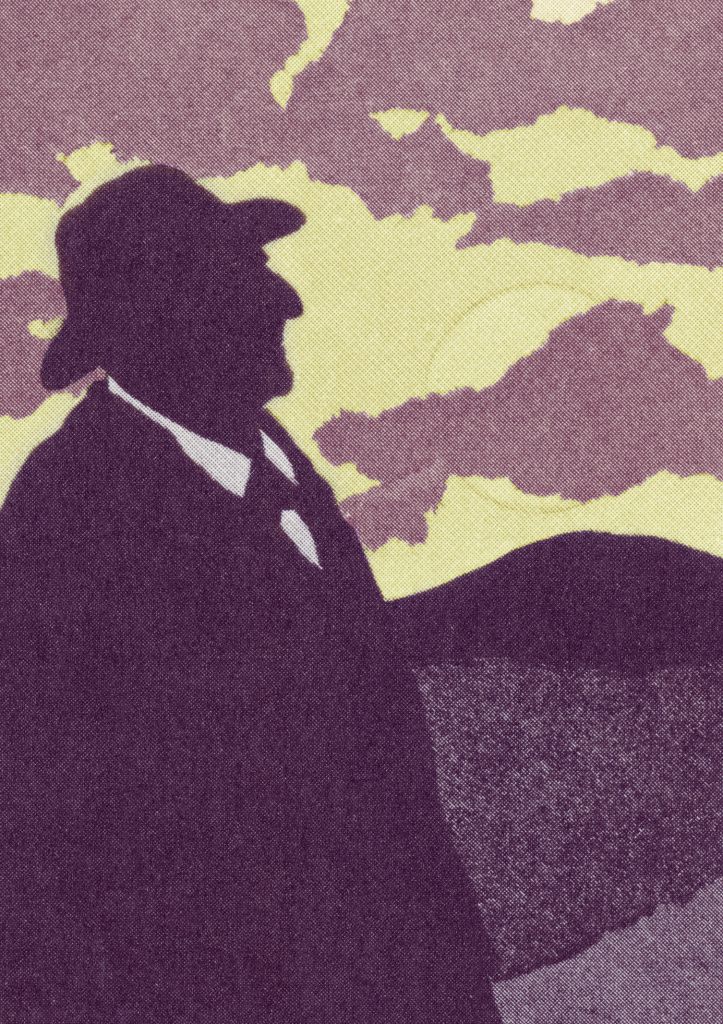„Dass es Bruckner gegeben hat, ist für mich das größte Geschenk Gottes.“
Sergiu Celibidache
Biographie eines Unzeitgemäßen – so betitelte Wolfgang Johannes Bekh sein erhellendes Brucknerbuch von 2001 sehr trefflich. Das Unzeitgemäße, die unverrückbare Konstante im Zuge ernsthafter Auseinandersetzung, die ein hochkomplexes Lebens- und Schaffensgebäude zu erschließen sucht und sich nicht mit vergnüglichen Spaziergängen durch anekdotisch heitere Vorhöfe begnügt – sie steht als Herausforderung und verstörendes Fragezeichen am Beginn jeder profunden Annäherung an Bruckner und reißt eine Kluft der Aporie in den Weg der Erkenntnis, die – auf vermeintlich bequemer, schnurgerader Bahn angepeilt – gerade bei diesem unergründlichen Protagonisten weitgehend sich versagt oder doch kaum ergiebige Konturen zu gewinnen scheint; vielmehr müssen in geduldiger, sukzessiver „Sternwanderung“ von mehreren musikhistorischen, zeitperspektivischen und psychografischen Standorten her auf teils verschlungenen Pfaden Zugänge versucht werden, die erst in Summe zu einem tieferen Verständnis des Künstlers und Menschen Anton Bruckner heranführen können.

Zu den vielen Großereignissen des Brucknerjahres gesellt sich – in gebotener Bescheidenheit und doch selbstbewusst – eine Veranstaltungsreihe des Anton Bruckner Instituts für Chor- und Ensembleleitung sowie Tonsatz in der Musikpädagogik in Zusammenarbeit mit mehreren anderen Instituten der mdw. Wie sieht diese hauseigene „Sternwanderung“ zu Bruckner aus? Da ist zunächst eine wissenschaftliche Vortragsreihe zu nennen, die den Versuch unternimmt, Bruckner als Künstler, Lehrer, Mensch und Persönlichkeit von unterschiedlichen Perspektiven her anzustrahlen und auszuleuchten. Die Besonderheiten seiner Tonsprache, sein Wirken als Musikpädagoge, seine Beziehung zu Wagner, sein Werk und dessen Rezeption im Hinblick auf politische Entwicklungen des späten 19. und frühen 20. Jahrhunderts: All dies und mehr soll thematisiert, referiert und kritisch reflektiert werden. Eine Diskussion zweier renommierter Bruckner-Dirigenten wird dem Abenteuer der Interpretation ebenso wie dem Problem der Fassungen auf den Grund gehen. Mehrere Konzertveranstaltungen wollen Bruckners kompositorisches Werk außerhalb der omnipräsenten Sinfonik in Auswahl vorstellen und dazu einladen, auch den Chor-, Kammermusik-, Klavier- und Liedkomponisten, ja selbst den Blasmusikkomponisten Anton Bruckner näher zu erkunden. Aber auch zur Begegnung mit der Sinfonik (in kammermusikalischer Reduktion) sowie zur Konfrontation Bruckner’scher Motetten mit zeitgenössischer Chormusik wird Gelegenheit bestehen.
Ein spezieller „Bruckner-Tag“ im Juni wird Vorträge, Themenspaziergänge und Freiluftklänge mit Konzert- und Ausstellungsformaten verbinden. Im Herbst wird schließlich in der Hofburgkapelle im Rahmen einer Feierstunde der 200. Geburtstag Anton Bruckners festlich begangen werden. Bruckners universitäre Antrittsrede von 1876, von Cornelius Obonya im Originalwortlaut vorgetragen, wird den Mittelpunkt einer musikalisch exquisit umrahmten Matinee bilden, die dem schöpferischen Vermächtnis des Jubilars in orts- und programmwürdigem Gedenken begegnen will.
In seiner Schrift Vom Geist der Utopie lieferte Ernst Bloch vor hundert Jahren ein sympathisches Plädoyer für den einsamen Oberösterreicher:
„Endlich ist mit Bruckner wieder Gesang in die Welt gekommen, ein gutes Gewissen dazu. Von Wagner hat er gelernt, aber das überhitzte Wesen, die ‚blutige‘ Partitur ist verschwunden. Es erscheint tätige Beweglichkeit und sich in sich wandelnde Ausstrahlung geistiger Art, geistiger Wesenheiten, schwingende Ruhe, wenn von Bruckner auch mehr noch aus dem ‚kosmischen‘ denn aus dem ‚intelligiblen‘ Reich geschöpft. Doch ist er so sorgsam als er wechselreich und tief ist. Was wir an ihm lieben, das ist seine Wärme, Wohligkeit und die ganze verloren gewesene Freude am Unterwegs.“1
Die wissenschaftlichen und künstlerischen Veranstaltungen des Anton Bruckner Instituts laden alle Interessierten und Empfänglichen durch zehn Monate, von März bis Dezember 2024, zur Erkundung und Auseinandersetzung ein, zur Annäherung und kritischen Begegnung mit dem großen Unzeitgemäßen und nicht zuletzt zur Erfahrung seiner Wärme, Wohligkeit und Freude am Unterwegs.

